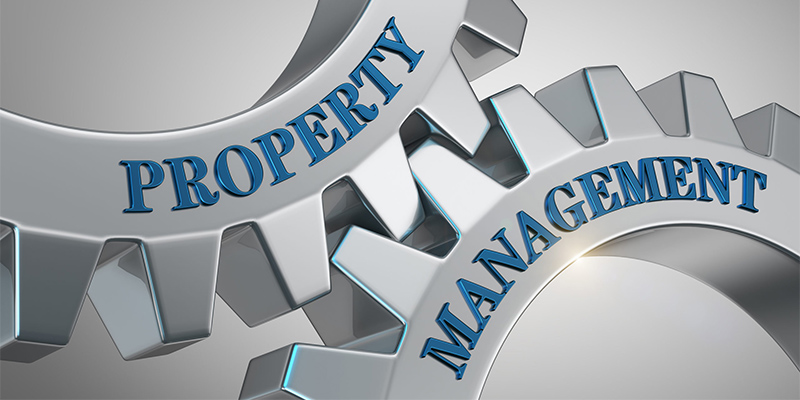Is It Time To Switch Community Property Management Companies?

Given the many benefits of community property management, it's always a complex decision to fire community property managers. When it comes to HOA property management, however, it's best to stick to standards. When you encounter these warning signs, then perhaps it's time to ask the big question.
Browse By Category
Sign up for Our Newsletter
Given the many benefits of community property management, it’s always a complex decision to fire community property managers. When it comes to HOA property management, however, it’s best to stick to standards. When you encounter these warning signs, then perhaps it’s time to ask the big question.
Should You Change Our Community Property Management Company?
Homeowners associations are an integral part of maintaining your residential community. HOAs enhance life in the community in various ways. They make sure that all essential finances are taken care of.
They also ensure that the community hires the best contractors to keep the neighborhoods in order. HOA management also ensures that the streets and community areas are safe and secure for all home or condo owners.
HOAs are also generally run by local residents within the community. Often, HOA staff are volunteers who wish to maintain a good standard of living for their families and neighbors.
Usually, they also do this at the cost of their own time. Volunteering time to help maintain their residential communities can often have some harsh implications for their family and home lives.
Thus, it is not easy for most HOA workers to juggle their time. They have to balance raising their family and having to commit their spare time to run their residential community.
What Community Property Management Experts Offer
Community property managers are able to take much of the strain of running an HOA from the residents and voluntary staff.
Due to HOA staff having separate careers and lives away from running the homeowners association, community property managers are often employed to assist as a backup.
Community property management companies also assist HOAs in numerous ways. Primarily, HOAs turn to experienced community property management companies to help handle the day-to-day running of a residential community.
Community property management companies also offer help with hiring the right service vendors. Thus, they help to ensure common residential areas, such as tennis courts and gardens, are safe and well kept.
Why You Need Community Property Managers

They can also assist the HOA in finding other external contractors to ensure that the needs of the residents are met.
Additionally, community property management companies can help HOAs with the collection of regular fees and assessments. These fees that the residents pay mainly go towards maintaining the community.
This specific function alone can already help alleviate a lot of stress from HOA workers. They do not have to risk upsetting their neighbors by asking directly for fees and dues to be paid.
Good community property management companies also offer training and seminars for the HOA board and its members. They also provide education about maintaining the residential areas and offer guidance on how to run an effective homeowners association. They can also help answer the questions HOAs have about the bylaws and local regulations that affect them.
Heed These Warning Signs
A community property manager is an agent that works on behalf of the HOA board. The same goes for the community management company that works for you as well.
So, whatever they do, they need to do so in a matter that represents you well. More importantly, you need to make sure that they are working in your best interests.
How do you know when your community property manager is becoming a liability? Make sure you don’t miss any of these warning signs. You always have the option to fire community managers or address the issue in some other way. Whichever the case, swift action is a must if you see any of the following.
1. Does Not Comply With Management Agreement
There are many reasons why a property manager may fail to comply with the management agreement. Whatever the reason is, it’s best for you as part of the HOA board to address them immediately.
Noncompliance can range from simple shortfalls. Like a time you asked for three bids for a major project, but the manager only provides two. In the worst case, the property manager may even stop performing tasks entirely.
2. Unbecoming Behavior or Outright Disrespect
Your HOA board pays for the community property management service you hired. Thus, it does not need to be said that you have a right to excellent service. There is simply no reason for your association, or any of its members, to tolerate rude property managers. They need to conduct themselves with the utmost professionalism if they are to represent your board.
Not all property managers have a perfect manner of dealing with people. Nonetheless, they need to know how to be professional, even when met with difficult residents. If your manager is unqualified in this regard, perhaps it’s time to make a switch.
3. Lack of Communication
Your HOA board should be able to reach its community property manager when appropriate. If your manager is slow in responding to emails, or even in answering phone calls, then perhaps it’s time to have someone more active.
Your HOA board is practically overpaying a manager when you can’t get them to do a task. Some HOA boards may simply give up and try to handle things on their own. Your residents deserve better, and you can make that change happen.
4. Receiving Fees or Kickbacks From Vendors

There is no reasonable explanation for a third party HOA management company to receive fees from vendors.
First, you are already paying them for their services. Second, those kickbacks are already a form of conflict of interest. Thus, they are no longer in a good position to serve in the best interests of your community.
Third, and perhaps worse, those fees are indirectly being passed on to you. So, you are paying your vendors more, and your residents are paying higher assessments — all to line the pockets of your community property manager. If you suspect that this is happening, don’t hesitate to resort to legal action.
5. Lack of Financial Transparency
As a member of your community, you have a right to know where your fees are going. If your community property manager fails to provide you with complete transparency concerning your HOA’s finances, then that’s a huge red flag.
How do you know if your community property manager isn’t being transparent? If they don’t supply you with receipts for various expenditures or if they provide you with inaccurate financial statements, they’re not being transparent with you. This might just be a result of poor financial management or it might be something else entirely. It could even be a sign of fraudulent activity.
Either way, you should take immediate action. Change your community management HOA company or take legal action, whichever is necessary. In doing so, you can protect your community from further harm.
How to Find Your Community Best Property Management
Once you’ve determined that it’s time for a change in companies, you need to start the search process all over again. That’s often easier said than done, especially since the first time didn’t go exactly as planned. You can avoid running into the same problems with your next company, though, by following these tips:
1. Look Online
The best place to start your search for your next community property management company is online. There are tons of online directories that list credible companies that you can filter according to your location. You can also do more research on prospective companies by looking for reviews of their services. If a company has had bad press coverage, you’ll definitely find it online.
2. Ask for Referrals
Although you can read testimonials and reviews of certain companies online, nothing beats word-of-mouth. In fact, people tend to trust recommendations from people they know more than other types of advertising. This doesn’t come as a surprise since firsthand accounts are always more reliable than reviews from people you’ve never met before.
When shopping around for new management, ask your friends or relatives for referrals. If you know anyone who belongs to a homeowners association outside of yours, it’s worth asking for their recommendations, too.
3. Send Out RFPs
Once you’ve gathered a list of prospects, it’s time to send out requests for proposals (RFP). Simply put, an RFP asks companies to submit their proposals, which consists of the services they offer, their fee structure, and other pertinent details.
Your RFP should discuss the bidding process, formatting specifics, and any budgetary restrictions you might have. Sending this document out will allow your HOA board to review uniformly formatted proposals, making it an easier process altogether.
4. Review Qualifications and Credentials
 Much like any job application, you should take a look at your prospects’ qualifications and credentials.
Much like any job application, you should take a look at your prospects’ qualifications and credentials.
Check their certifications and licenses. What makes them qualified to become your community’s management company?
People usually get the wrong idea about big companies. They have this notion that the bigger and more well-known a company is, the better. But, that may not be entirely true.
Sure, bigger companies have more resources to spare, but they also typically have more clients to serve. That means you’ll be dealing with a company that has to divide its time and attention among numerous communities.
In comparison, a smaller company may not have as many clients. Therefore, they may be able to devote more time to your community. Of course, it still depends on your exact needs and situation. If your community has thousands of units, you may be better off with a company that can handle your sheer size.
5. Conduct Interviews
It’s always a good idea to meet with your prospects to ask them questions in-person. This will allow you to gain a deeper understanding of their personalities and behaviors. It also gives you a chance to ask important questions.
When wondering which questions to ask, remember what went wrong with the previous company. For instance, if your previous management company had a problem with response time, ask your prospects about how they handle customer support.
6. Review the Management Contract
Contracts can be scary in that they sometimes hide important terms and clauses among the seemingly endless blocks of text. You might be tempted to just sign the contract to get it over with, but that’s just downright irresponsible.
Make sure to review your management contract, preferably with your HOA attorney, before signing it. One thing to look out for is any hidden fees. For example, some companies charge extra every time they need to attend board meetings beyond their monthly limit.
Another thing to check for is an automatic renewal clause. Some contracts automatically renew for another term if you fail to terminate it by a specified date.
Find a Community Property Management Company You Can Trust
If you need to switch to a different community property management company, make sure to find one you can rely on. We have a national directory of trusted HOA service providers you can look at.
RELATED ARTICLES:
- 5 Common Communication Problems In HOAs Without A Manager
- Property Management Fees vs HOA Management Fees: How Different Are They?
- How Much Is The Typical HOA Management Fee?
Trending Now
Related Article
Sign up for Our Monthly Newsletter
Sign up below for monthly updates on all HOA Resource















